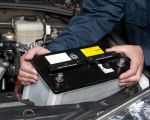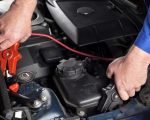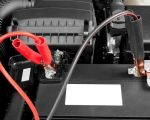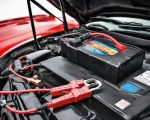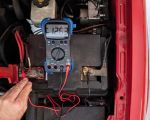How to Prevent a Battery from Dying in Cold Weather
As winter approaches, many car owners start to worry about their vehicle’s battery. Cold weather can have a significant impact on a car’s performance, especially when it comes to the battery. When temperatures drop, the chemical reaction inside the battery slows down, reducing its ability to hold a charge. As a result, car owners may find themselves dealing with a dead battery on cold mornings, often when they need their car the most. Fortunately, there are steps you can take to prevent your battery from dying in cold weather. In this article, we’ll cover the best practices for ensuring your car battery stays strong even in freezing temperatures, and how to avoid the inconvenience of a dead battery when you need to be on the road.
- 1. Check the Health of Your Battery
- 2. Insulate Your Battery for Added Protection
- 3. Keep Your Battery Terminals Clean
- 4. Avoid Short Trips in Cold Weather
- 5. Consider Using a Trickle Charger
- 6. Replace Your Battery Regularly
1. Check the Health of Your Battery
The first step in preventing a dead battery during the winter months is to assess the health of your car's battery. A battery that is already weak is much more likely to fail in cold weather. It is important to have your battery tested before the winter season starts. Many auto parts stores and mechanics offer free battery testing, where they can check the charge level and overall health of your battery. If your battery is nearing the end of its life or showing signs of wear, replacing it before the cold weather hits can save you from being stranded with a dead battery.

NTB-National Tire & Battery
6315 Prentiss School Dr, Canal Winchester, OH 43110, USA
2. Insulate Your Battery for Added Protection
Another way to help your battery survive cold weather is by insulating it. Car battery insulation can help maintain the internal temperature of the battery and reduce the likelihood of freezing. In extreme cold conditions, the battery’s electrolyte fluid can freeze, causing irreversible damage. There are specific battery insulation kits available that are designed to keep your battery warm and functional during the winter months. These kits are simple to install and can be a great investment for those living in areas with particularly harsh winters.

Pep Boys
1200 W Washington Blvd, Los Angeles, CA 90007, USA
3. Keep Your Battery Terminals Clean
Battery terminals that are covered with dirt or corrosion can prevent your battery from working properly. Over time, corrosion can build up on the battery terminals, hindering the electrical connection between the battery and the car. This is especially problematic in cold weather, where the battery's power output is already reduced. Clean your battery terminals regularly to remove any corrosion or debris that could affect the battery’s performance. You can use a mixture of baking soda and water to clean the terminals, but be sure to wear gloves and take care not to get any solution on the battery’s cells.
4. Avoid Short Trips in Cold Weather
Short trips can drain your car’s battery in cold weather. When you take short trips, your battery doesn’t have enough time to recharge fully. This is particularly problematic during the winter, as the alternator needs time to recharge the battery, and cold weather slows down this process. If you can, try to combine errands into one trip or consider taking longer drives to help ensure your battery remains fully charged. Alternatively, if your daily routine involves many short trips, consider investing in a battery charger or jump-start kit as a backup in case your battery gets drained.
5. Consider Using a Trickle Charger
If you live in an area with extremely cold weather, using a trickle charger can be a lifesaver. A trickle charger is a device that charges your car’s battery slowly and consistently, ensuring that it stays at a good charge level throughout the winter. These chargers are ideal for people who do not use their car on a daily basis or for those with older batteries. Trickle chargers are easy to install and use, making them a great investment to avoid having to deal with dead batteries during the colder months.
6. Replace Your Battery Regularly
While keeping your battery in top shape is important, it’s also essential to replace your battery regularly. Most car batteries last between 3 to 5 years, depending on usage and climate conditions. If your battery is older, especially if it is approaching the 5-year mark, consider replacing it before the winter season begins. Cold weather can exacerbate issues with older batteries, so proactively replacing it can save you time and hassle. Consult your vehicle's manufacturer guidelines for recommended battery replacement intervals, and schedule a replacement as necessary.
Preventing your car's battery from dying in cold weather is all about being proactive. By regularly checking the health of your battery, keeping the terminals clean, and taking steps to insulate the battery, you can ensure that your car starts every time, even in the coldest months. If you’re unsure about your battery’s condition or need assistance with installation or maintenance, don't hesitate to reach out to a professional. With the right care, you can avoid being stranded this winter.
For more information about car maintenance and how to avoid common winter issues, visit Rescue & Towing for expert advice and services.















